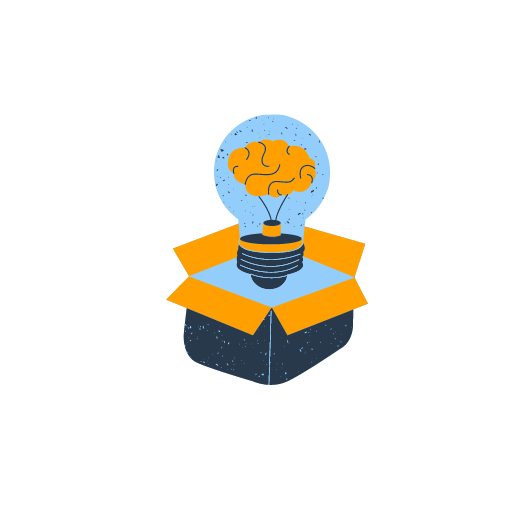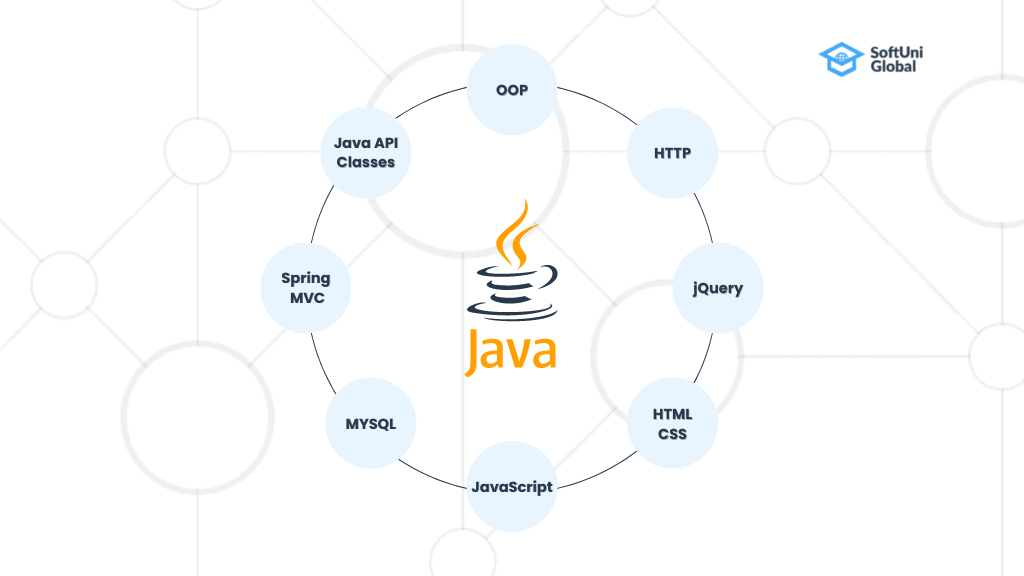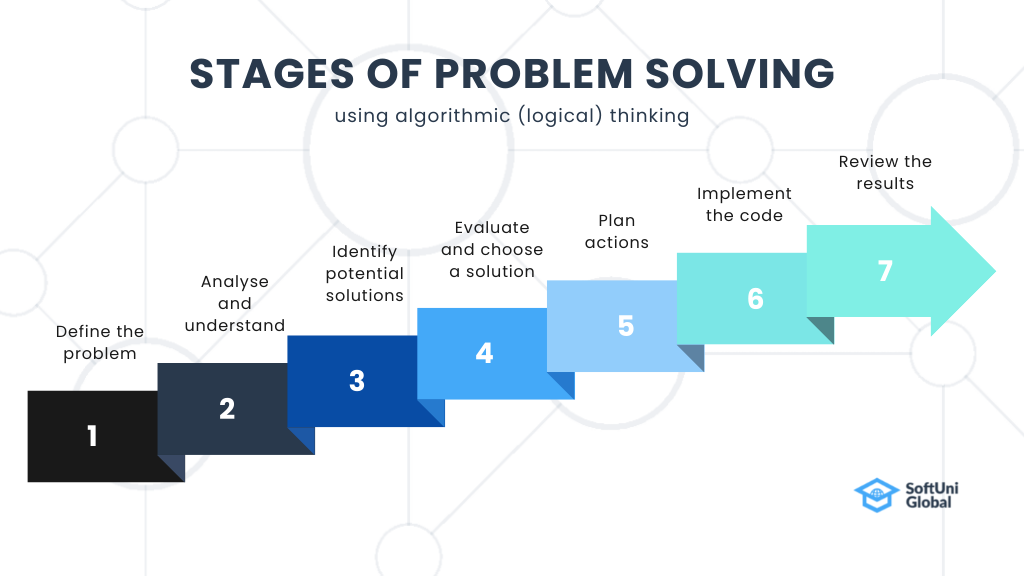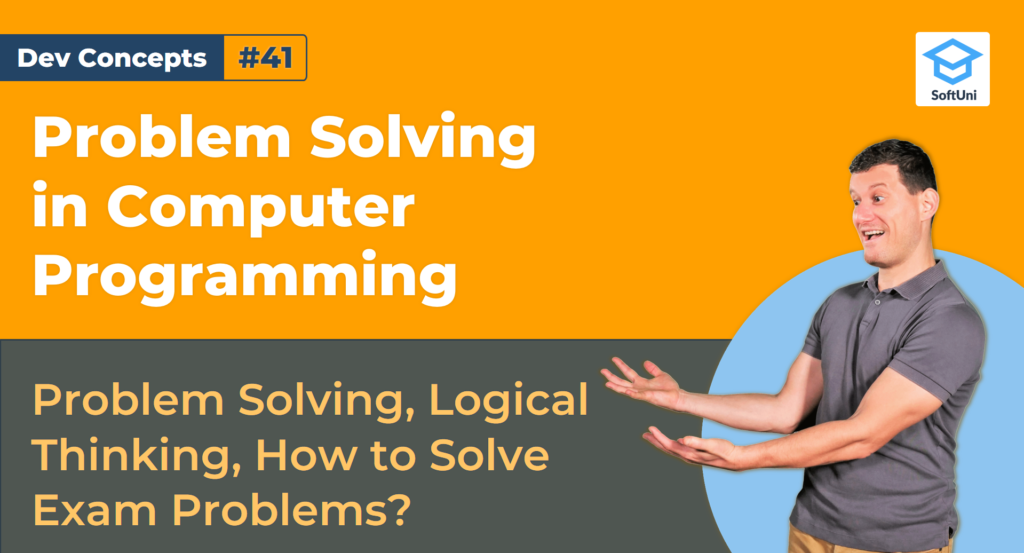To become a skilful developer means not only being familiar with a programming language or software but also having a set of skills that are fundamental to the software development process. These skills can be classified into four groups :
- Coding skills;
- Algorithmic thinking and problem solving skills;
- Fundamental software development concepts;
- Programming languages and software technologies.
Technical Skills
The skill of coding is knowledge of the basic concepts of programming. They are universal and once learned, can be applied in many programming languages. The programming language does not matter to the ability to code.
You need to know how to:
- Use development environments (the so-called IDEs) and developer tools;
- Work with variables and data, calculations, conditional statements, loops and data structures;
- Use functions, methods, classes and objects, programming APIs and libraries;
- Troubleshoot and debug code.
Now that you are familiar with the foundations of programming, you need to put that knowledge together and plan every step of finding a solution to a problem. This will require your algorithmic thinking and problem-solving skills.

Algorithmic thinking is the ability to break a problem into a logical sequence of steps (called “algorithm”), to find a solution for every step (or break it further into sub-steps) and then assemble these steps into a working solution.
Algorithmic thinking is similar to logical, engineering, mathematical, abstract, and problem solving. All these concepts are related to the ability to solve problems: to think logically, analyse the problems, and find and implement solutions. Problem solving is a more general skill, while algorithmic thinking is a more technical.
The fundamental computer science and software development concepts include many programming paradigms, essential software development knowledge and skills, and software engineering principles and concepts that developers typically acquire as they gain experience over time.
Some of these knowledge areas and concepts are:
- Object-oriented programming (OOP);
- Functional programming (FP);
- Asynchronous programming ;
- Relational and non-relational databases;
- The concepts behind the Web technologies.
To implement your knowledge you need to be familiar with programming languages, software development technologies, software platforms, software libraries, development frameworks and developer tools.
On the graphic below you can see an example technology stack for a Java developer.

Technologies are ever-changing and evolving, but these four groups of skills described above represent essential and stable knowledge since they will not change significantly over time. In fact, technologies are highly dependent on these skills.
Soft Skills
Soft skills are as important as the ones described above. They include the ability to communicate with people and work in a team which is essential since you as a developer will work on projects with your colleagues. You need to manage your time effectively, to be empathetic, adaptable and creative. Having attention to detail will increase your productivity at work and reduce the chances of error.
Tech Problem Solving
In the IT industry, a tech problem is often an assignment to design and implement a set of functionality which has certain input data and program state and produces output data and program state.
Every tech problem has a goal. In programming, the goals are to design and write a working code, build an app or software system, which corresponds to the assignment and implement its requirements and functionality. Developers may encounter certain technical difficulties or limitations in designing and implementing the required functionality, like lack of resources, experience or knowledge. The process of problem solving includes finding a way to overcome these difficulties. This can be, for example, learning a new programming language, software library or framework.
Stages of Problem Solving
How to approach a tech problem?
You can see in the graphic below seven stages of resolving a problem.

First of all, you need to define the problem. This involves gathering the requirements of the assignment.
After that, you analyse them. Here you should think about constraints, objects, processes and potential obstacles related to the problem. Based on a deeper understanding of the problem, you can extract the important information from the requirements and discard the non-important information, and explore its properties, which will be useful for building a solution.
The next step is to identify several solutions. You try to generate and explore different ideas and technical approaches on how to build a well-working solution. Then you analyse these ideas, their correctness, their strengths and weaknesses, their practical applicability and the costs of their implementation.
After you have gathered some ideas you need to choose one of them. This is a decision-making process and depends mainly on the requirements, your capabilities and available resources.
After that, you need to plan and describe your actions for executing the chosen solution. You plan your algorithm. Technically, this means to write the definition of several functions, methods or classes, which will implement the chosen idea.
Sometimes planning of the algorithm is done together with its implementation, and there is no clear separation between the stages of algorithm design and algorithm implementation.
Once you have a clearly defined algorithm, you implement it. This means writing code to execute the planned steps. In software development, the implementation process includes also testing and debugging.
The last stage of problem solving is to review the results or test the solution with different input data and conditions. For software problems and apps, you need to perform testing of the code, feature by feature: to check for usual and unusual input data and conditions, check for edge cases and special cases.
Tips for Solving Problems
When it comes to solving a tech problem, the first and foremost important thing is understanding it. Take your time to read and analyse it thoroughly. Do not start to code immediately, because if you have not read the problem carefully, there is a chance of making hasty assumptions about the requirements.
Use a sheet of paper or other visualization tools. This will help you sketch your ideas fast and will improve your logical thinking. Squared paper is preferable. It works best for algorithmic problems. It helps build drawings, diagrams, tables and coordinate systems.

Write down the given input and the required output.
For example, if your task is to find all odd numbers of a given array ask yourself some questions:
- What do I have? → An array and odd numbers.
- What is an array and how does it work? What is an odd number? What data type should I use to store it? → These questions will help you understand the problem.
- What is the end goal? → To filter odd numbers in the array and return it.
- How can I do it? → You may have multiple answers to this question and they are your potential solutions. Write them down, compare their advantages and disadvantages and then choose one of them.
After you implement the code test and debug it if needed. Make sure that you have covered all cases. Then look back and try to optimize and simplify your code making it easier to understand.
Lesson Topics
- Technical Skills;
- Soft Skills;
- Definition of a Tech Problem;
- Stages of Problem Solving;
- Tips for Solving Problems.



